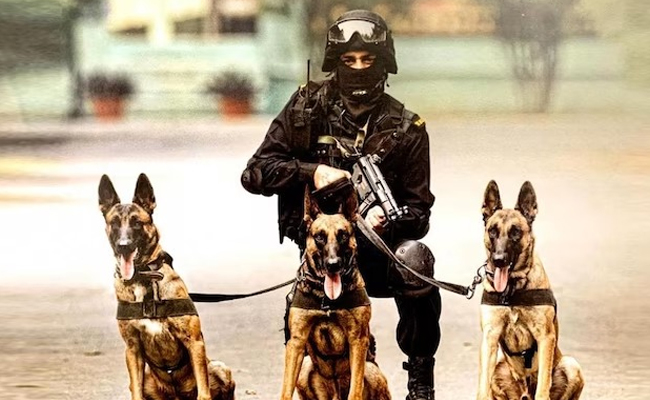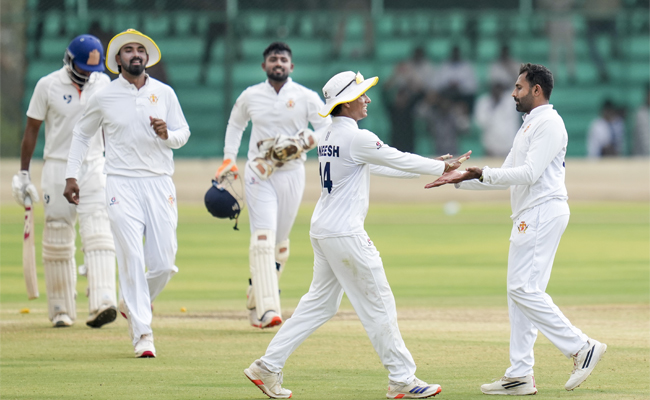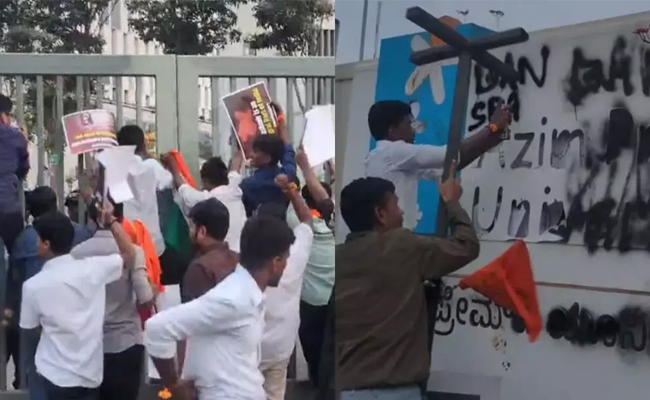New Delhi (PTI): Indian dog breed Rampur hound, Himalayan mountain canines Himachali shepherd, Gaddi and Bakharwal and the Tibetan mastiff are likely to be deployed soon for police duties like sniffing out suspects, narcotics and explosives, besides patrolling risk-prone areas, officials said.
The Central Armed Police Forces (CAPFs) like the BSF, CRPF and CISF are all set to recruit Indian dog breeds for police duties as trials of a few such as the Rampur Hound are underway. An order has also been issued for testing the Himalayan mountain canines.
At present, almost all police dogs are foreign breeds like the German shepherd, Labrador, Belgian Malinois and Cocker spaniel.
"The trial of the Indian dog breed Mudhol hound has already been concluded by the SSB and the ITBP. Trials of a few other Indian dog breeds like the Rampur hound are also undergoing at the canine training centres of the CRPF and the BSF," a home ministry official said.
Besides, the ministry has also ordered trials of the Himalayan mountain dogs like the Himachali shepherd, Gaddi, Bakharwal and the Tibetan mastiff simultaneously by the Border Security Force (BSF), Indo Tibetan Border Police (ITBP) and Sashastra Seema Bal (SSB). The trials are going on now.
Prime Minister Narendra Modi has in the past spoken about promoting local dog breeds through scientific means.
All dogs hired by the CAPFs are part of the Police Service K9 (PSKs) squads. The CAPFs which hire and train the dogs for police duties are the BSF, CRPF, CISF, ITBP, SSB, NSG and the Assam Rifles.
Police dogs are trained for tasks like the detection of explosives such as IEDs and mines, narcotics and fake currencies, besides patrolling and others.
Dogs are also sometimes used in search operations to locate terrorists, the official said.
The home ministry has also taken a few vital steps to strengthen the culture and ecosystem of mutual learning and cooperation among the CAPFs and other police and law enforcement organisations on the issue of PSKs.
The CAPFs, with nearly 4,000 dogs, are the largest police dog users in the country. Around 300 pups are hired by the CAPFs every year.
Among the CAPFs, the largest number of dogs are with the Central Reserve Police Force (around 1,500), followed by the Central Industrial Security Force (around 700). The counter-terror organisation National Security Guard (NSG) has about 100 dogs, another official said.
The K9 squad was set up by the home ministry as part of its police modernisation programme in 2019 with an aim to streamline the breeding, training and selection of dogs.
Interestingly, all combat dogs of the CAPFs are now undergoing an annual evaluation exercise to assess their efficiency and suitability for their specified tasks like sniffing out suspects, narcotics and hidden explosives, besides patrolling risk-prone areas, the official said.
The home ministry, under whose command the CAPFs and several other forces work, has formulated a standard operating procedure (SOP) for the K9 squads of these forces and has directed them to include it in their dog-training curriculum.
"The ambit of internal security was widening, the difference between internal and external security threats was getting narrower, and police and CAPF dogs were an effective force multiplier for ensuring safety and security of the troops in operations and also the citizens," the official said.
Let the Truth be known. If you read VB and like VB, please be a VB Supporter and Help us deliver the Truth to one and all.
Manjeshwar: The participation of a CPI leader in a Hindu convention organised by the RSS has triggered discussion in political circles.
Sundari Shetty, former president of Meenja panchayat and a district committee member of the CPI in Kasaragod, attended the Hindu gathering held in Meenja. She offered floral tribute to a portrait of Bharat Mata and also addressed the gathering from the stage, which has led to controversy.
Following the development, the CPI district unit has issued a notice to Sundari Shetty seeking an explanation. Party sources said that the presence of a senior leader of a party that follows communist ideology at a Hindu convention has caused unease within the party.
There are indications that disciplinary action may be initiated against her in connection with the incident.





